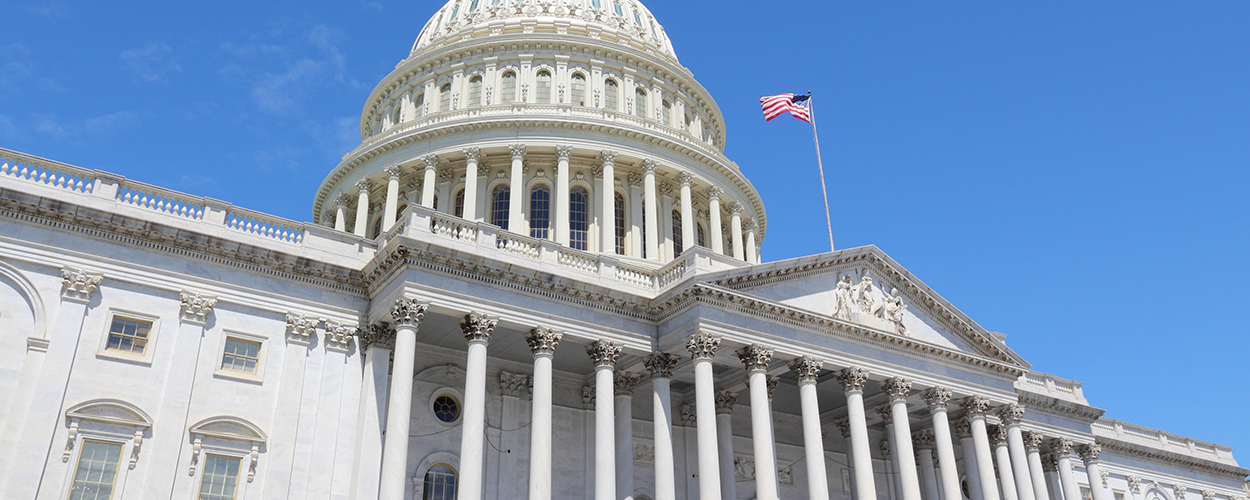This website uses cookies so that we can provide you with the best user experience possible. Cookie information is stored in your browser and performs functions such as recognising you when you return to our website and helping our team to understand which sections of the website you find most interesting and useful.
Business News Digital Labels & Publishers Legal Top Stories
House Of Representatives passes the Music Modernization Act
By Chris Cooke | Published on Thursday 26 April 2018

The US House Of Representatives has passed the Music Modernization Act, with everyone who voted backing the proposals. That means the legislation – which will overhaul various aspects of music licensing in the US – can now proceed to the Senate.
The Music Modernization Act being voted on in Congress yesterday actually brings together elements of four different sets of music-related proposals that have been on the table in Washington for a while.
That includes the original Music Modernization Act, which seeks to set up a mechanical rights collecting society in the US for the first time. Its implementation would mean that, as in other countries, streaming services could access a ‘mop up’ licence that covers the so called mechanical rights in any songs streaming on their platforms not already covered by a direct deal with a music publisher.
No such licence is available in the US at the moment, meaning streaming services need to identify each individual copyright owner for every song on their platform. US copyright law actually sets the rate that is paid when the mechanical rights in songs are exploited, but the streaming firm must provide the copyright owner with paperwork and their statuary royalties.
With the lack of a central database of music rights ownership information, the streaming firms have failed to do that with all songwriters and music publishers, resulting in mega-bucks copyright infringement lawsuits.
The passing of the Music Modernization Act and the creation of a new collecting society will fix that problem for the services. Though it doesn’t necessarily mean the songwriters and publishers will get paid – the data problem remains – though unpaid copyright owners will have to take up the lack of payment with the new society.
That element of the MMA principally benefits the streaming services, hence their support for the legislation. But the act will also change the way the US Copyright Royalty Board and rate courts set what royalties should be paid whenever compulsory or collecting society licences apply, which should benefit the music industry. Those reforms will also apply to the performing rights of both songs and recordings.
Other measures in the MMA passed yesterday seek to address America’s pre-1972 copyright technicality and to provide extra benefits for record producers and sound engineers, proposals which were originally contained in the CLASSICS Act and AMP Act respectively.
There are still critics of the MMA in both the music community and among music users, though there are plenty of high profile supporters of the legislation on both sides of the debate too, as well as bipartisan support in Congress. Sufficient consensus across the board, in fact, to allow the speedy passing of the proposals by the House Of Representatives, the new version of the act having only been unveiled earlier this month.
All that consensus also means there were lots of people welcoming yesterday’s vote in Washington and putting out official quotes for you all to consume, digest and enjoy.
Though they’re mainly slight reworks of the quotes they all put out two weeks ago when the revamped MMA proposals were first published. A bit like this entire article really. With that in mind, and given you’re busy people, here’s the edited highlights of the latest round of MMA quoting.
National Music Publishers Association CEO David Israelite: “Truly historic”.
Digital Media Association CEO Chris Harrison: “Streaming forward”.
Recording Industry Association CEO Cary Sherman: “Essential ingredient”.
Nashville Songwriters Association International President Steve Bogard: “Important step”.
Sony/ATV Music Publishing CEO Martin Bandier: “Game-changing”.
SoundExchange CEO Michael Huppe: “Historic day”.
musicFIRST Coalition Executive Director Chris Israel: “Keep fighting”.
SAG-AFTRA National Executive Director David White: “Justly compensated”.
Recording Academy President CEO Neil Portnow: “Honoured”.
ASCAP CEO Elizabeth Matthews: “THRILLED”.





